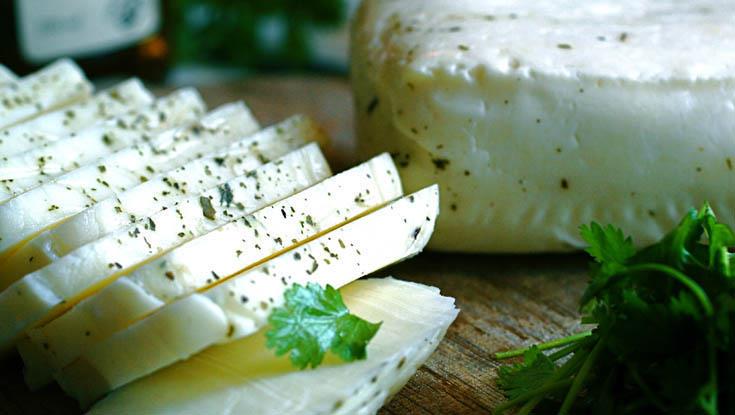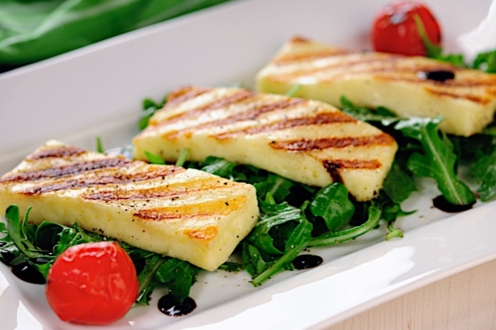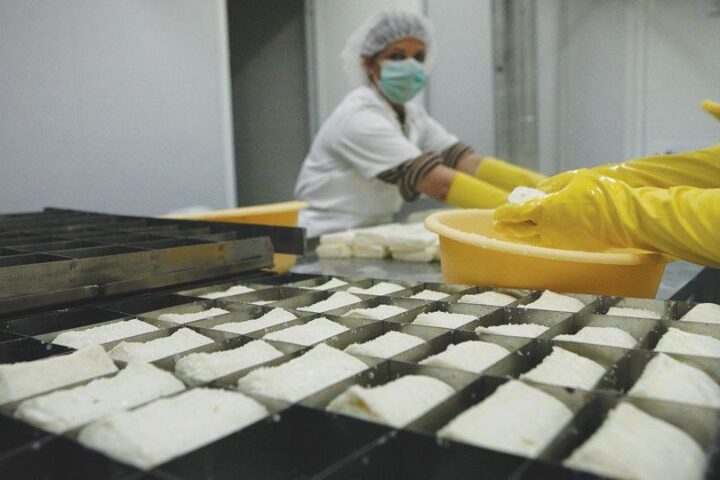Cyprus could lose its flagship export product, halloumi, as the government turns the heat on dairy producers that do not meet the required EU standards under the cheese’s PDO (Product of Designated Origin).
Following a Legal Services ruling, products that defy the PDO criteria cannot carry the Halloumi brand in local stores or be exported to the EU or third countries.
A day after the ruling was made public on Monday, customs authorities seized 8,260 kg of Halloumi products just as they were loaded on aeroplanes.
The products were heading for Ireland, and the United Kingdom, labelled as Halloumi Burgers.
In comments to the Financial Mirror, Chamber of Commerce and Industry representative Andreas Andreou said the business world is deeply concerned over recent developments.
If not overturned, Cyprus could well lose halloumi altogether.
“Halloumi is our number one export, putting food on the table for thousands of Cypriot families, and we are about to throw it out the window ourselves,” said Andreas Andreou.
Asked to comment on authorities confiscating products which do not meet the PDO criteria, Andreou said that this was to be expected following the decision of the Attorney General’s office.
Cyprus’ Law Office has urged the Agriculture and Commerce Ministries to tighten checks to stop substandard halloumi reaches local retailers.
According to the legal services, there is only room for a single product labelled halloumi, which is the one that meets the specifications of the PDO.
It argues that having different halloumi on the market will cause confusion and lead to consumers being deceived.
The PDO file submitted in 2014 said goat’s milk should by 2024 exceed cow’s milk, reaching a minimum of 51%, produced from specific Cypriot breeds of goats and sheep.
This did not satisfy cheesemakers who feared the loss of halloumi exports, claiming they could make halloumi under the EU Trademark, bypassing the milk ratio criteria.
The Legal Services have ended that claim with their recent decision.
“If this decision is implemented, it would mean that Halloumi exports generating millions would be slashed by more than two thirds overnight,” said Andreou.
Sales and exports of halloumi in 2020 and 2021 generated €270 mln annually, despite COVID restrictions.
“This could be reduced to just over €60 mln.”
He argued that some 70% of Halloumi products do not comply with PDO criteria.
“We are deeply concerned that the whole issue will blow Cyprus’ credibility in handling Halloumi and other PDO registered products,” said Andreou.
No more halloumi fries
He said foreign embassies and big importers from the UK and other third countries keep a close eye on developments.
“If we lose our place on supermarket shelves in the EU and third-country markets such as the UK, there’s no going back.
“Other halloumi type products from other countries will fill the gap. It will be nearly impossible to regain that space in the future”.
Andreou argued that even if producers decide to sell their produce under a different name, they would still lose out to competitors.
The Financial Mirror reached out to dairy producers who have refused to comment on developments.
However, a source close to the industry told the Financial Mirror that dairy producers are concerned that complying with the strict description of the cheese in the PDO is next to impossible.
The file foresees that goat’s milk should by 2024 exceed cow’s milk, reaching a minimum of 51%, with a designated amount of mint, while the products can only be sold in the traditional folded block shape.
Goat’s milk used in the mix should be from local goat tribes, which should be fed with specific animal fodder.
“Milk scarcity is one of the reasons why the dairy producers objected to the PDO and had called on the government to withdraw it.
“A possible implementation of the file in 2024 will see us rushing to find goat’s milk, endangering the country’s €300 mln exports in halloumi.
“The problem will be worse as the file stipulates that sheep and goats producing milk for halloumi should be of Cypriot origin.
“However, 70% of Cyprus’ sheep and goat population are not native,” said the source.
Cheesemakers fear the obligation to sell halloumi in blocks could lead to plunging sales of other popular products, such as halloumi burgers and light halloumi, which can no longer carry the brand name.
“All products such as Halloumi burgers, fries, and custom-made halloumi to satisfy other countries’ taste buds, like mint-free, will be banned.
“Packing halloumi blocks with mint is one of the PDO file’s criteria.”
Other stakeholders in Cyprus’ squeaky white cheese are the goat and sheep breeders who have protested the non-implementation of the PDO file by dairy producers, as this means that their milk is left unsold.
Goat and sheep breeders criticised the government for not carrying out the necessary checks.
Breeders argue that their livelihood is at stake with dairy producers not conforming to the PDO criteria.
A protest two weeks ago outside the Presidential Palace turned ugly after angry farmers dumped tonnes of milk and set bales of hay alight.
The Agriculture Ministry values the global halloumi cheese market at €420 mln, while studies show it could generate over €625 mln in several years.










